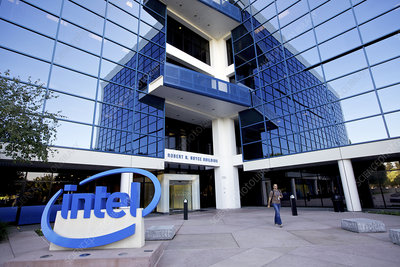According to people familiar with the issue, Intel Corp. is considering a significant decrease in staff, potentially in the thousands, to cut costs and cope with a failing PC industry.
According to the sources, who requested not to be identified because the discussions are private, the layoffs will be disclosed as early as this month, with the corporation expecting to make a move around the same time as its third-quarter results announcement on Oct. 27. As of July, the chipmaker employed 113,700 people.
According to the insiders, some departments may suffer workforce cutbacks of up to 20%, including Intel’s sales and marketing business.
Intel is suffering a severe decrease in demand for its primary business, PC CPUs, and has failed to reclaim market share lost to rivals such as Advanced Micro Devices Inc. In July, the business cautioned that sales in 2022 would be nearly $11 billion lower than originally anticipated. Analysts estimate a 15% reduction in sales in the third quarter. And Intel’s once-enviable margins have shrunk: they’re around 15% smaller than previous figures of about 60%.
Intel stated on its second-quarter results call that it may make adjustments to increase profitability.
“In 2022, we are also decreasing core spending and will try to take more steps in the second half of the year,” Chief Executive Officer Pat Gelsinger stated.
Intel’s latest major round of layoffs happened in 2016 when it cut over 12,000 positions or 11% of its workforce. Since then, the corporation has made lesser layoffs and closed other divisions, including its cellular modem and drone units. Like many other businesses in the technology industry, Intel suspended recruiting earlier this year as market conditions deteriorated and worries of a recession intensified.
According to Bloomberg Intelligence analyst Mandeep Singh in a research note, the recent cuts will likely decrease Intel’s fixed expenses by 10% to 15%. He believes the expenses will range from $25 billion to $30 billion.
Gelsinger took over as CEO of Intel last year and has worked hard to rebuild the company’s status as a Silicon Valley classic. But it was an uphill battle even before the PC decline. Intel has lost its long-held technological advantage, and its own officials admit that the company’s culture of innovation has deteriorated in recent years.
A larger slump is now adding to those difficulties. Intel’s PC, data centre, and artificial intelligence divisions are dealing with a drop in tech investment, dragging revenue and earnings.
According to IDC, PC sales fell 15% in the third quarter. HP Inc., Dell Technologies Inc., and Lenovo Group Ltd. utilising Intel CPUs on laptops and desktop PCs saw their stock prices plummet.
With PC prices stagnant and demand declining, Intel may need to decrease its payout to overcome cash-flow difficulties, according to Singh. However, he believes that Intel’s decision to sell shares of its Mobileye self-driving technology firm in an initial public offering will alleviate such fears.
Intel’s decision to cut back comes at an uncomfortable time. This year, the business fought hard for a $52 billion chip-stimulus measure, promising to expand its manufacturing in the United States. Gelsinger proposes a construction boom that will bring the world’s largest chipmaking hub to Ohio.
Simultaneously, the corporation is under great pressure from investors to increase earnings. In 2022, the company’s stock has dropped more than 50%, with a 20% drop in the previous month alone.
Tensions between the United States and China have also shadowed the chip industry’s future. On Friday, the Biden administration unveiled new export restrictions, limiting what US technology businesses might sell to the Asian nation. The revelation sent chipmaker shares sliding again, with Intel losing 5.4% that day.
Intel has been attempting to reclaim its market position by delivering new PC CPUs and graphics chips. Selling additional chips to the data-centre industry, where competitors AMD and Nvidia Corp. have made inroads, is a critical component of their plan. On Tuesday, Google announced new Intel-powered server farm technologies that would assist in accelerating artificial intelligence workloads.
Some chipmakers, notably Nvidia and Micron Technology Inc., have stated that they will avoid layoffs for the time being. However, other technology firms, like Oracle Corp. and Arm Ltd., have already laid off employees.
Read:
- Samsung & Intel Collaborate to Build “Sliding” PCs
- Here Are The 5 Best Intel Processors You Can Buy in 2022
- Intel 13th Gen Core i9-13900K is Over 40% Quicker than AMD Ryzen 9 5950X in AOTS Benchmark













